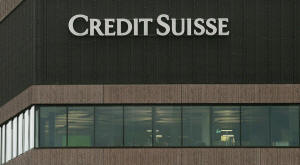|
U.S. hits Credit Suisse, Deutsche Bank
with toxic debt penalties
 Send a link to a friend
Send a link to a friend
 [December 23, 2016]
By Michael Shields and Arno Schuetze [December 23, 2016]
By Michael Shields and Arno Schuetze
ZURICH/FRANKFURT (Reuters) - Credit Suisse
<CSGN.S> and Deutsche Bank <DBKGn.DE> have been hit with a combined
penalty of more than $12 billion over the sale of U.S. toxic debt,
further hampering two of Europe's leading investment banks as they
struggle with weak earnings.
The penalties stem from an initiative launched by U.S. President Barack
Obama to pursue banks for selling sub-prime debt without warning of the
risks, a practice that led to the worst economic crisis since the Great
Depression.
Credit Suisse agreed to pay more than $5.2 billion in a deal with U.S.
authorities and the penalty is likely to push it to a second consecutive
annual loss.
The payment, to settle claims it misled investors when selling
mortgage-backed securities in the run-up to the 2008 financial crisis,
is split into two parts.
It will first pay $2.48 billion and later provide $2.8 billion over five
years to offset the impact on consumers, the bank said.

That news came after Deutsche Bank <DBKGn.DE> agreed to a total $7.2
billion settlement for its pooling and sale of toxic mortgage
securities, the settlement also divided in a similar manner. The German
bank had previously said that the Department of Justice was seeking
twice that figure.
"I think the fines are reasonable and represent a positive for the
system," said Alberto Gallo, head of global macro strategies at hedge
fund Algebris Investments.
The penalties put the two European banks at a further disadvantage to
larger U.S. rivals, many of whom have already absorbed their own fines
for such wrongdoing and have strong capital cushions.
U.S. banks earlier paid $46 billion in such penalties.
DEUTSCHE SHARES RISE
Investors, who had feared an even bigger penalty for Deutsche, were
relieved and its shares gained more than 2 percent. They have risen more
than 80 percent since hitting a record low at the end of September on
fears the bank would need to raise cash from investors.
[to top of second column] |

The logo of Swiss bank Credit Suisse is seen on an office building
in Zurich, Switzerland, December 23, 2016. REUTERS/Arnd Wiegmann
'
"It's no great coup but the settlement reduces the uncertainty,"
said Ingo Speich, of Union Investment, a Deutsche bank shareholder,
adding that he now did not expect the bank to sell more shares to
bolster its capital.
Credit Suisse, who people familiar with the matter earlier told
Reuters had fought to soften its settlement, saw its shares slip by
more than 1 percent.
The final deal is in line with the $5 billion-$7 billion the U.S.
Department of Justice (DOJ) had asked Credit Suisse to pay earlier
in negotiations, as reported by Reuters on Monday.
Credit Suisse said it would take a pre-tax charge of approximately
$2 billion in addition to its existing reserves against these
matters in the final three months of 2016.
Analysts at regional bank ZKB said that the charge would depress the
bank's leverage ratio from 3.4 percent to 3.1 percent.
The U.S. authorities meanwhile sued Barclays <BARC.L> on Thursday
over similar claims.
Barclays said on Friday that it rejected the complaint, would
"vigorously defend" the case and sought its dismissal "at the
earliest opportunity".

(Additional reporting by Maiya Keidan, Arno Schuetze, Karen
Freifeld, Kathrin Jones and Simon Jessop; writing by John O'Donnell;
Editing by Adrian Croft and Keith Weir)
[© 2016 Thomson Reuters. All rights
reserved.]
Copyright 2016 Reuters. All rights reserved. This material may not be published,
broadcast, rewritten or redistributed. |